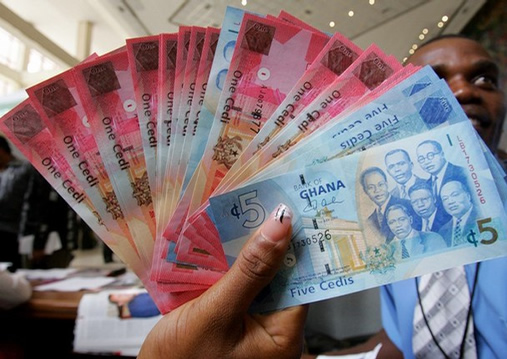

 In recent months, the Ghanaian cedi has shown remarkable strength against major foreign currencies, bringing a wave of optimism across sectors that rely heavily on imports.
In recent months, the Ghanaian cedi has shown remarkable strength against major foreign currencies, bringing a wave of optimism across sectors that rely heavily on imports.
Naturally, the real estate sector—a vital pillar of Ghana’s economy—should be among the primary beneficiaries.
However, a closer look reveals a more complex reality: despite the stronger cedi, the cost of key construction inputs such as cement, iron rods, tiles, sand, chippings, roofing sheets, plumbing and electrical materials, and carpentry remains largely unchanged.
This disconnect is triggering what industry observers call a “paradox of appreciation”—a situation where the benefits of currency gains are not felt on the ground, especially by developers and property buyers.
The theoretical benefits of a strong cedi
Under normal economic conditions, a stronger cedi should reduce the cost of imported construction materials.
Products priced in dollars or euros—like imported tiles, roofing sheets, sanitary ware, and electrical components—should become more affordable in cedi terms.
Additionally, developers holding dollar-denominated loans benefit by paying less in local currency to service their debts, freeing up capital for expansion or price reductions.
A strong cedi also inspires confidence in the market, attracting foreign investors, the Ghanaian diaspora, and mortgage financiers who see stability as a green light for increased participation in the real estate sector.
The reality on the ground: Input costs remain high
Despite these theoretical gains, prices of core building materials in Ghana have not fallen.
Cement prices remain elevated, iron rods continue to trade at peak levels, and other finishing inputs show little to no reduction.
This pricing inertia is causing concern among developers, homebuyers, and policymakers alike.
The reasons are varied:
Suppliers’ reluctance to adjust prices in the face of uncertain long-term currency trends.
- Imported stock acquired at higher rates still being offloaded at old price points.
- Transport and operational costs locally continue to rise, offsetting currency benefits.
- Speculative behavior and supply chain rigidities, which prevent quick price adjustments.
Implications for real estate developers
For developers, this scenario is squeezing profit margins. While a stronger cedi should lower project costs and potentially allow for price reductions or added value to consumers, stagnant input prices keep cost structures elevated.
This limits developers’ ability to pass savings to buyers, making it harder to meet market expectations.
Worse still, if input prices do not drop in response to the appreciating cedi, many developers risk ending their projects at a loss.
The combination of high costs and stagnant selling prices—especially in a competitive market—means some projects may become financially unviable.
This is particularly dangerous for projects already underway with budgets based on expected currency-driven cost savings.
Impact on homebuyers and the housing market
Homebuyers expecting property prices to drop with a stronger cedi are finding the opposite: prices remain unchanged or increase marginally.
This further widens the affordability gap, particularly for middle- and lower-income earners who are sensitive to even slight price changes.
Demand becomes fragile as potential buyers hold off in anticipation of future price drops.
This uncertainty hurts sales velocity and developer cash flow—factors essential for healthy market growth.
What can be done?
Review supply chain pricing: Real estate associations, in collaboration with government bodies, must encourage input suppliers to align pricing with prevailing exchange rates.
Promote local alternatives: Investing in and incentivizing the production of quality local materials can shield the industry from import price rigidities.
Enhance transparency: Developers must educate clients and investors on cost dynamics to manage expectations and maintain trust.
Push for policy support: Tax incentives or temporary price controls on key materials can stabilize the sector and ensure the cedi’s appreciation translates to real benefits.
Conclusion
Ghana’s real estate sector stands at a critical juncture.
The strengthening of the cedi is a golden opportunity to unlock growth, increase affordability, and drive investment.
But without corresponding reductions in construction input prices, this opportunity risks being lost.
The consequences are real: tighter margins, delayed projects, and in some cases, actual financial losses for developers.
The industry must act collectively—developers, suppliers, regulators, and financiers—to ensure that currency gains are not just visible in exchange rate tables but also reflected in the bricks, steel, and mortar of homes across the country.
By Dr Joseph MK. Ayiku
Source: GNA
The post Cedi appreciation and its paradoxical impact on Ghana’s real estate sector appeared first on Ghana Business News.
Read Full Story






















Facebook
Twitter
Pinterest
Instagram
Google+
YouTube
LinkedIn
RSS